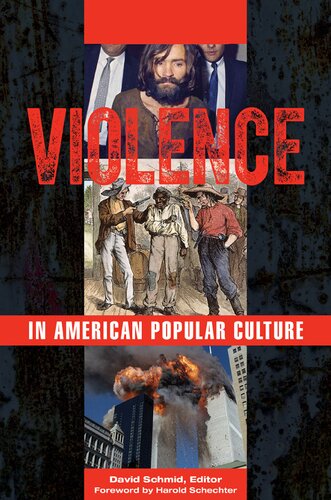

Most ebook files are in PDF format, so you can easily read them using various software such as Foxit Reader or directly on the Google Chrome browser.
Some ebook files are released by publishers in other formats such as .awz, .mobi, .epub, .fb2, etc. You may need to install specific software to read these formats on mobile/PC, such as Calibre.
Please read the tutorial at this link: https://ebookbell.com/faq
We offer FREE conversion to the popular formats you request; however, this may take some time. Therefore, right after payment, please email us, and we will try to provide the service as quickly as possible.
For some exceptional file formats or broken links (if any), please refrain from opening any disputes. Instead, email us first, and we will try to assist within a maximum of 6 hours.
EbookBell Team

4.7
36 reviewsThis timely collection provides a historical overview of violence in American popular culture from the Puritan era to the present and across a range of media.
Few topics are discussed more broadly today than violence in American popular culture. Unfortunately, such discussion is often unsupported by fact and lacking in historical context. This two-volume work aims to remedy that through a series of concise, detailed essays that explore why violence has always been a fundamental part of American popular culture, the ways in which it has appeared, and how the nature and expression of interest in it have changed over time.
Each volume of the collection is organized chronologically. The first focuses on violent events and phenomena in American history that have been treated across a range of popular cultural media. Topics include Native American genocide, slavery, the Civil Rights Movement, and gender violence. The second volume explores the treatment of violence in popular culture as it relates to specific genres―for example, Puritan "execution sermons," dime novels, television, film, and video games. An afterword looks at the forces that influence how violence is presented, discusses what violence in pop culture tells us about American culture as a whole, and speculates about the future.